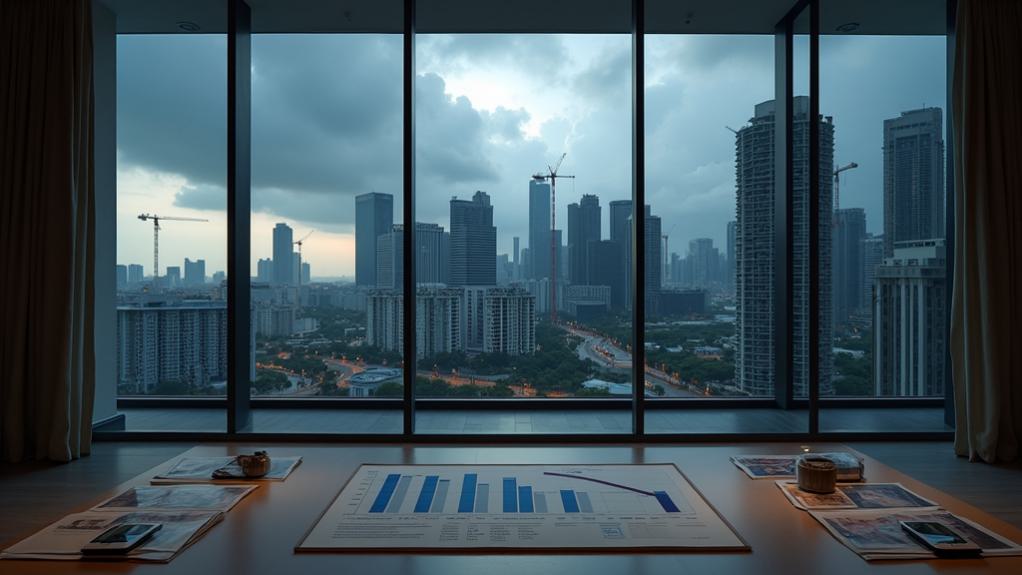Singapore’s residential property market plummeted precipitously in March as developer home sales nosedived 54% month-over-month to 729 units, excluding executive condominiums, marking one of the most notable single-month contractions in recent years. This sharp decline follows a particularly robust period when quarterly sales had reached their highest levels since 2021, according to Urban Redevelopment Authority figures released in April 2025.
The pronounced sales reduction coincided with a 67% decrease in new property launches, greatly limiting inventory and buyer options in the market. This supply constraint appears to have exacerbated the downward trend in transaction volumes, creating a compound effect on market activity during the period under review.
Global economic headwinds, particularly intensifying trade tensions and newly imposed U.S. tariffs, have considerably dampened buyer sentiment and eroded confidence in near-term market stability. Market analysts point to these macroeconomic uncertainties as primary factors driving potential purchasers to adopt wait-and-see positions, temporarily sidelining their acquisition plans while awaiting greater clarity in economic projections. The current situation mirrors historical trends where economic uncertainty has led to decreased closings in real estate markets.
Despite the current volatility, indicators suggest the market maintains its fundamental resilience. Christine Sun of OrangeTee Group emphasized that many homebuyers are exercising increased caution due to the economic uncertainty currently affecting the market. Remarkably, a record number of executive condominiums sold above the $2 million threshold indicates robust demand persists in specific market segments, demonstrating the selective nature of the current slowdown rather than a thorough market retreat.
The broader economic context frames this decline appropriately, as Singapore’s highly trade-dependent economy remains particularly susceptible to international economic fluctuations. Government officials have correspondingly revised national growth projections downward, a factor weighing on overall property market sentiment. The implementation of cooling measures like Additional Buyers Stamp Duty continues to regulate market overheating while ensuring sustainable growth.
Historical precedent suggests such contractions often represent temporary market adjustments rather than structural shifts. Previous economic disruptions, including financial crises and policy cooling measures, have similarly produced pronounced but generally short-lived sales declines.
Long-term investor appetite for Singapore property appears intact, with real estate continuing to represent an attractive asset class for wealth preservation during periods of market uncertainty.





